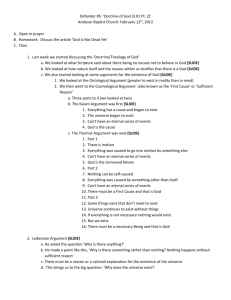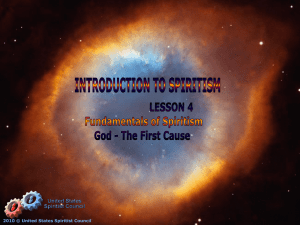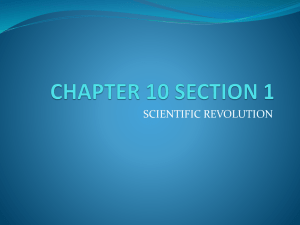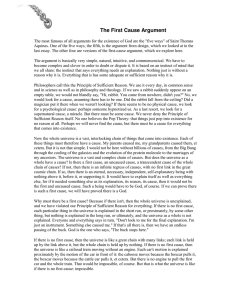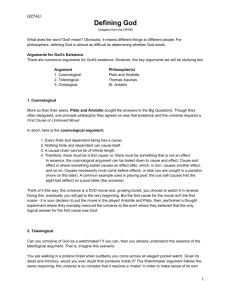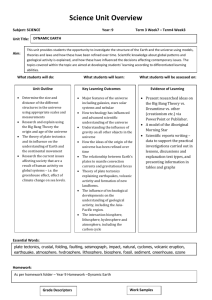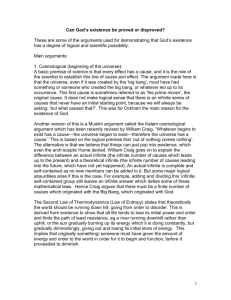Mr. Chapel – Sacraments - Discussion “Handbook of Christian
advertisement
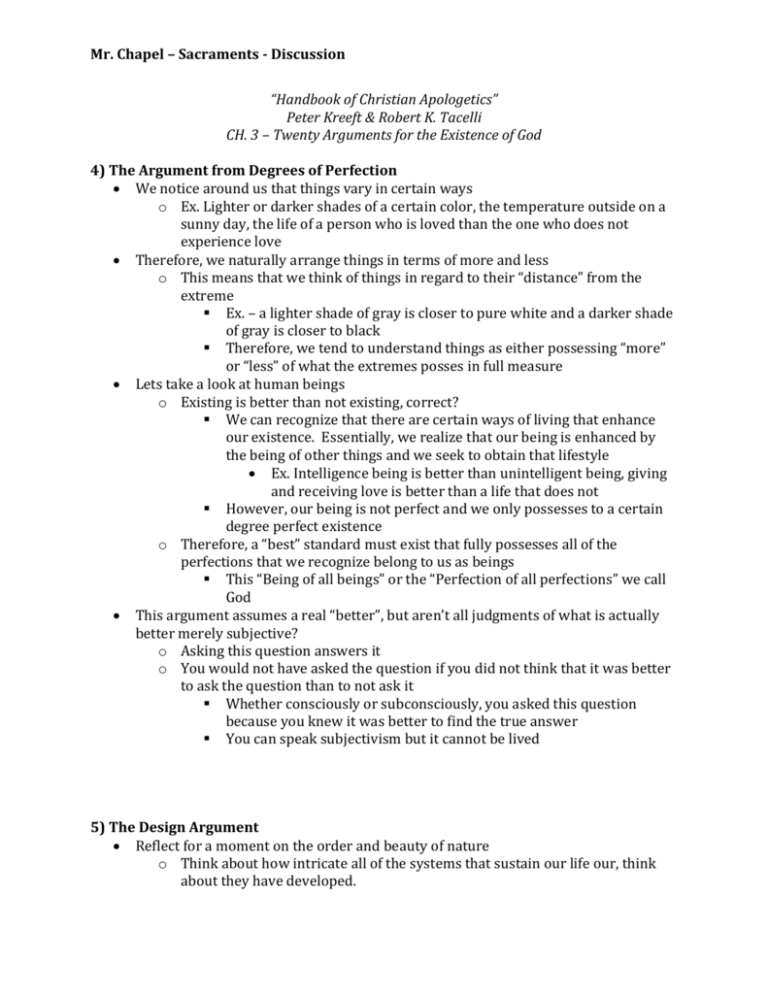
Mr. Chapel – Sacraments - Discussion “Handbook of Christian Apologetics” Peter Kreeft & Robert K. Tacelli CH. 3 – Twenty Arguments for the Existence of God 4) The Argument from Degrees of Perfection We notice around us that things vary in certain ways o Ex. Lighter or darker shades of a certain color, the temperature outside on a sunny day, the life of a person who is loved than the one who does not experience love Therefore, we naturally arrange things in terms of more and less o This means that we think of things in regard to their “distance” from the extreme Ex. – a lighter shade of gray is closer to pure white and a darker shade of gray is closer to black Therefore, we tend to understand things as either possessing “more” or “less” of what the extremes posses in full measure Lets take a look at human beings o Existing is better than not existing, correct? We can recognize that there are certain ways of living that enhance our existence. Essentially, we realize that our being is enhanced by the being of other things and we seek to obtain that lifestyle Ex. Intelligence being is better than unintelligent being, giving and receiving love is better than a life that does not However, our being is not perfect and we only possesses to a certain degree perfect existence o Therefore, a “best” standard must exist that fully possesses all of the perfections that we recognize belong to us as beings This “Being of all beings” or the “Perfection of all perfections” we call God This argument assumes a real “better”, but aren’t all judgments of what is actually better merely subjective? o Asking this question answers it o You would not have asked the question if you did not think that it was better to ask the question than to not ask it Whether consciously or subconsciously, you asked this question because you knew it was better to find the true answer You can speak subjectivism but it cannot be lived 5) The Design Argument Reflect for a moment on the order and beauty of nature o Think about how intricate all of the systems that sustain our life our, think about they have developed. o Think about how vast the universe is, think about how small we are in comparison to it It takes light approximately 1 second to reach the moon from earth About 8 minutes from the sun to earth About 4 years to the nearest star 100,000 years to span across the Milky Way 2.5 million years to the Andromeda Galaxy This means that the stuff that we actually see in the sky does not actually exist as we are observing it at that moment The universe displays a staggering amount of intelligibility (info that can be understood) o Those things that we observe (existence) o The way these things relate to other things outside of themselves (coexistence) o The way things exist and coexist display and intricately beautiful order and regularity that fill the observer with wonder and awe Ex. Protein molecule cell eye Ordered parts of delicate complexity work together with countless others Either this intelligible order is the product of chance or of intelligent design Not by chance o We can only understand chance against the background of order o When we say that something happened by chance we say so because it did not occur according to our expectations Expectations arise from order Therefore the universe is the product of intelligent design Design only comes from a mind, a designer 7) The Argument From Contingency If something exists there must exist what it takes for that thing to exist o Ex. The universe – a collection of beings in space and time – it most certainly exists Therefore, something must exist that allows the universe to exist What it takes for the universe to exist cannot exist within the universe or be bounded by time and space Therefore, what it takes for the universe to exist must transcend both time and space Deny the first premise? o You believe X exists (X represents the universe, the finite world around us) o Y represents the immediate conditions necessary for X’s existence X exists only if Y exists (X’s existence is contingent upon Y’s existence) Reference argument #2 Efficient Causality o Your logic is this: X exists; X can only exist if Y exists; Y does not exist Flawed o The infinite condition that must exist in order for the universe to exist we can understand as God At this time you may not regard this infinite condition as God but it would be hard to deny that our existence is contingent upon an infinite being that is not limited by matter We have been put in motion by something that exists outside of our universe ***Through reason we have arrived upon knowledge that: 1) the universe has been created 2) that it is right now kept in being by a cause that is not bound to the limitations of matter 3) this cause is a being that transcends the kind of being we humans directly know a. We cannot physically experience this being and it is therefore difficult to understand this being. Nevertheless, it is more reasonable to believe that there is a God than to believe that there isn’t ***Now that we have answered the question of “does God exist?” The next question we will attempt to answer is “who is God?”, “what are his attributes?”, “what is his plan for creating the universe and establishing humans as set apart from the rest of creation?” -What we have available to us to answer these questions is revelation (God’s communication with man) that exists in the form of Sacred Scripture and Sacred Tradition -But first we will look to the person of Jesus Christ and his divinity


